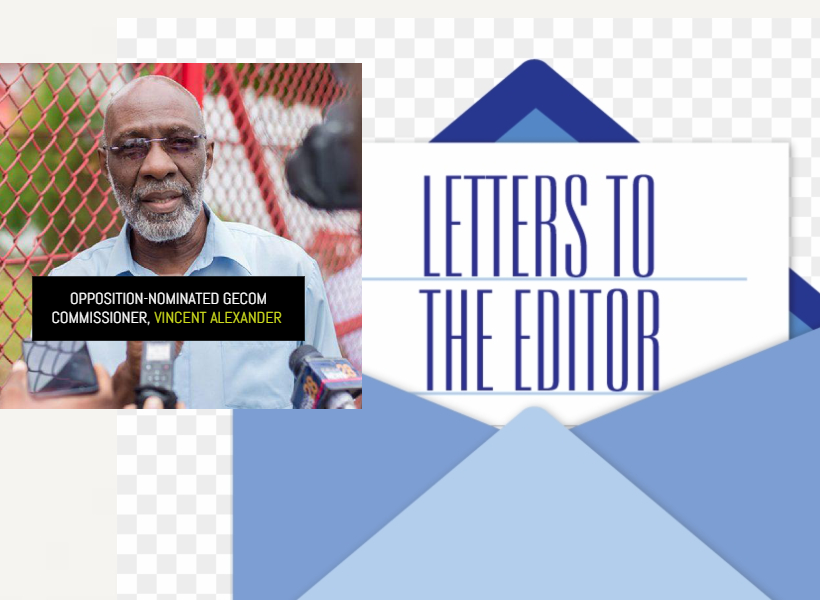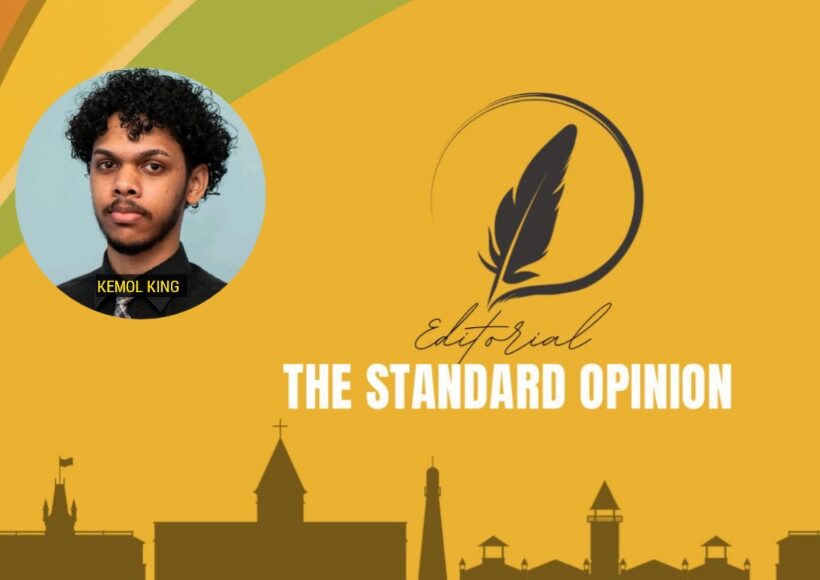By Kemol King
With Azruddin Mohamed facing 11 charges of corruption and fraud in a Florida court, that could carry a prison term of up to 20 years on each count, Guyana’s newest political movement, the We Invest in Nationhood (WIN) party, will need a contingency plan for the real possibility that its leader may be unable to serve.
Mohamed and his father were arrested in Georgetown late last month, after the United States formally requested their extradition to face charges in a Florida Court. Both were released on bail hours later. The WIN leader insists he is innocent and has accused the government of persecuting him because of his political ambitions.
The nation’s newest political force must now determine what happens if its founder and figurehead may not be able to serve as opposition leader, or that his tenure could be short-lived.
This editorial does not aim to write Azruddin Mohamed off. Rather, it acknowledges that if he were to be imprisoned or otherwise removed from the political scene, the WIN party could be left headless. And so, the question arises: who would replace Azruddin Mohamed at the helm of the opposition?
The 2025 elections made Mohamed one of the country’s most influential new political figures, after his WIN party won nearly a quarter of the seats in Guyana’s 65-member Parliament in its first electoral contest. It was one of the most surprising political upsets in Guyana’s modern history. Such a young movement is vulnerable. The same charisma and populist energy that carried it forward could, in the absence of its leader, just as easily disintegrate. WIN needs a succession plan that preserves its core identity and keeps its supporters confident. Let’s turn to the figures who have been most visible beside him.
Foremost among them is Odessa Primus, the party’s General Secretary and arguably its most charismatic personality aside from Mohamed himself. A long-time comedian and social worker, Primus is people-centric and unafraid of the spotlight. She calls Azruddin her “brother,” and he has expressed admiration for her.
Primus’ connection with ordinary people, and her understanding of Guyana’s social struggles, could make her an effective standard-bearer if the WIN party seeks continuity with Mohamed’s populist, personality-driven brand. Her experience as an entertainer and comedian should not dismiss her. History offers examples such as Ronald Reagan and Volodymyr Zelensky, who leveraged their skills in those careers to lead nations.
Another potential contender is Tabitha Sarabo-Halley, a crossover politician whose movements through multiple political parties makes her somewhat controversial. Between 2019 and 2025, she represented the Working People’s Alliance (WPA), served as Minister of Public Service under the APNU+AFC administration, broke away to sit independently in Parliament after being showed favour by David Granger, formed her own party (the Guyana Nation Builders Movement), and eventually joined WIN. Eventful, right?
There are two ways to interpret this path. Some may see Sarabo-Halley as someone who refuses to be confined by party lines in pursuit of service and her principles. Others may see a politician who opportunistically flips and flops to wherever she thinks she may find relevance and power. Of course, it’s possible to be somewhere in between.
Sarabo-Halley was WIN’s prime ministerial candidate in the September general election.
Then there is Dawn Hastings-Williams, once the General Secretary of the People’s National Congress Reform and Minister of State. When it comes to political experience and seniority, she may be WIN’s most valuable asset.
In honoring experience, WIN may also do well to consider the risk of alienating the very base that brought the party to prominence. Hastings-Williams, like Sarabo-Halley, emerged from the coalition of APNU and AFC that governed from 2015 to 2020. Many voters turned away from these parties. To elevate an establishment veteran could be seen as a betrayal of the very sentiment that gave rise to WIN: a rejection of old-guard politics. Could these former establishment politicians be Trojan horses who will hand over the keys to their former comrades if they manage to take the reins?
This is perhaps the most delicate issue. If WIN turns to either of the establishment crossovers, it risks looking more like the parties it sought to replace. Many of WIN’s supporters voted for Azruddin Mohamed’s representation of defiance, freshness, and disruption. It is a force outside of the traditional political order. To preserve that image, the party may need a leader who shares not just Mohamed’s message but his outsider energy. In that regard, Primus stands apart.
However, a key question is whether WIN would still have access to the treasury with which Azruddin Mohamed funded his campaign. Perhaps, his sister, Hana Khamelia, who recently hinted that she may renounce her foreign citizenship to start her own political journey, could be a leader with both the family brand that made Azruddin popular and the pockets to take his party forward?
There is also the question of ethnic representation. Guyana’s two dominant political parties have long paired presidential and prime ministerial candidates to reflect ethnic diversity. The PPP did it with an Indian President and African Prime Minister, and the APNU+AFC did the reverse. Whether Mohamed intended to follow this convention is unclear. He might have chosen Sarabo-Halley as his prime ministerial candidate because she is perceived to be the best suited for the role. He could have chosen her because, as a Black woman, she would help to reinforce in WIN, the confidence of its significant African Guyanese following. Or it could have been both.
While the discussion about a possible political successor to Azruddin Mohamed is necessary, it cannot escape a few truths. Much of Mohamed’s campaign was not built on ideology or structured policy positions, but on his personal brand. Supporters rallied behind him during his feud with the government, his defiance under U.S. sanctions, and his portrayal as a persecuted outsider. He also has years of visible philanthropy on his belt, from funding education, to building homes, to sponsoring local talent. These are personal dynamics that no successor can easily replicate.
So we can deliberate endlessly about who might succeed him and help WIN survive without the man who built it. But none of these women are Azruddin Mohamed. They don’t have his story. The simplest conclusion may be that, without him, there is no future for WIN.











